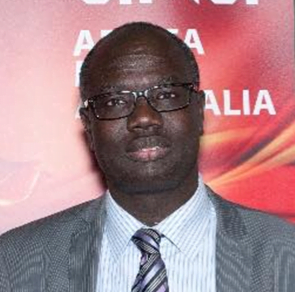Domestic and Family Violence Awareness and Prevention Initiative Conference
Domestic and Family Violence Awareness & Prevention Initiative Conference 2025 Theme: Together, we can break…










After a decade of research, critical gaps in mental health and healthcare service delivery for migrants, refugees, and asylum-seeking populations have been identified, largely influenced by social determinants of health and systemic inequities. The Centre for Migrant and Refugee Health (CMRH) was founded as a specialized organization to close these gaps in response to these urgent issues. CMRH aims to provide accessible, culturally responsive, comprehensive mental health and healthcare services, ensuring that vulnerable communities receive the necessary support within Australia and internationally.
The Centre for Migrant and Refugee Health (CMRH) was established and registered under the Incorporation Association Act in response to significant health challenges faced by refugees, migrants, and asylum-seeking populations. Studies from the Australian Institute of Health and Welfare (AIHW, 2022) indicate that refugees and humanitarian entrants are at a higher risk of mental health issues due to pre-migration trauma, displacement, and the resettlement process. Similarly, the World Health Organization (WHO, 2022) highlights that refugees and migrants frequently endure poor living and working conditions, which increase their vulnerability to both physical and mental health disorders. Despite the severity of these challenges, there remains limited disaggregated data on the specific mental health needs of these communities in Australia (AIHW, 2022; Mental Health Australia, 2021). In response, CMRH seeks to address these critical gaps by delivering culturally tailored, trauma-informed healthcare and mental health services, thereby improving outcomes and promoting long-term wellbeing for these vulnerable populations.
The COVID-19 pandemic exposed and deepened existing health disparities for culturally and linguistically diverse (CALD) communities in Australia. For the Centre for Migrant and Refugee Health (CMRH), this crisis underscored the urgency to act. Migrants, refugees, and asylum seekers face reduced access to care due to language barriers, digital exclusion, and a lack of culturally tailored public health messaging.
The CMRH took action by launching targeted initiatives to bridge these service gaps, focusing on culturally sensitive healthcare, mental health services, and holistic community support. These included bilingual telehealth counselling, food relief programs, wellness check-ins, and online psychosocial support. CMRH also conducted community-informed research and engaged with policymakers to promote equitable vaccine access and culturally appropriate health communications.
These interventions not only met immediate needs but also advanced systemic change. CMRH’s leadership during the pandemic strengthened community resilience and laid a lasting foundation for equitable and inclusive healthcare delivery.
The COVID-19 pandemic had a profound impact on the physical health, mental health, and social wellbeing of migrant, refugee, and asylum-seeking communities, significantly hindering the Centre for Migrant and Refugee Health’s (CMRH) growth and ability to deliver essential services. During this period, projects were delayed, access to healthcare was restricted, and the wellbeing of these populations deteriorated. In response, CMRH collaborated with government and non-government organisations to address these challenges, securing funding for public health education, mental health support, and vaccine rollout campaigns. These efforts contributed to a 98% vaccine uptake rate in Victoria, markedly improving health outcomes among vulnerable communities (CMRH, 2022).
Nationally, it is estimated that approximately 3.4 million Australians aged 16 to 85 access mental health services every two years, with 21.5% experiencing a mental disorder in any given year (Australian Institute of Health and Welfare [AIHW], 2022; Australian Bureau of Statistics [ABS], 2023). These figures underscore the critical importance of accessible mental health services, particularly for migrants, refugees, and asylum seekers, who often face additional structural, linguistic, and cultural barriers to care (Fisher et al., 2021; Fozdar & Torezani, 2020). Addressing these barriers is essential for achieving equitable healthcare access and improving national wellbeing outcomes.
As the COVID-19 pandemic subsided, CMRH resumed major projects to meet the community’s growing needs. They focused on accessible healthcare, mental health support,and community outreach. CMRH prioritised rebuilding trust, re-engaging with the community, and addressing health challenges through resumed services. Their initiatives highlighted a commitment to supporting resilience and recovery, with emphasis on mental health, public health education, and aiding vulnerable populations.
With CSRN’s pro bono services consultancy support from UK, CMRH expanded global partnerships, strengthening its ability to provide healthcare and mental health services locally and internationally. Collaborations with 180 Degrees Consulting and Cambridge Consulting Network propelled CMRH’s humanitarian efforts, supporting displaced populations and refugees across Africa. In 2024, CMRH reached crisis-affected regions,including South Sudan, Sudan, Uganda, Rwanda, Kenya, and beyond, marking a major milestone. CSRN’s strategic guidance has ensured sustainable impact, embedding CMRH’s services globally. These partnerships are essential for enhancing the wellbeing of vulnerable communities.
As CMRH continues to deliver top-quality health care and mental health services to the migrants, refugees, and asylum-seeking communities locally and internationally, it anticipates expanding partnerships with additional charitable organisations and philanthropies. These collaborations aim to enhance CMRH’s efforts each year in fulfilling its vision, mission, and values at a global standard while striving for recognition of its impactful service delivery moving forward.

Founder, Executive Director and Chief of the Board

Director, Research, Policy Development and Advocacy

Projects and Community Participation Officer

Senior Coordinator, Recruitment and Human Resources

Senior Project Officer, Child Education and Young People Mental Health and Wellbeing

Social Worker, Centre for Migrant and Refugee Health

Senior Project Officer, Cultural Precinct, and Innovation

Digital Product Management Consultant, IT Advisor, and Manager
We provide pragmatic, culturally safe, appropriate interventions, treatments, and rehabilitation that address mental health issues and circumstances that affect an individual`s mental health outcomes and wellbeing.
CMRH principles and values are set with beliefs that guide centre actions, operation and coordination with the stakeholders and partners both with and outside of CMRH
Advance public health leadership with a unified national voice in addressing mental illness and related social determinants of health to achieve better health outcomes and quality of life through mental health promotion, clinical and practical solutions through codesign, research, policy, and advocacy.
CMRH deploys existing health frameworks, monitoring and evaluation tools to achieve health outcomes. We demonstrate our work with values in all that we do in respect, integrity, equitable access, Excellence and Safety.
Domestic and Family Violence Awareness & Prevention Initiative Conference 2025 Theme: Together, we can break…
The Centre for Migrant and Refugee Health (CMRH) is proud to announce the launch of…
The event was graced by the presence of distinguished guests, including Vivienne Nguyen, Chairperson of…
The Centre for Migrant and Refugee Health (CMRH) is honoured to share that our CEO,…
Shining a Light on Rare Diseases and Their Impact on Lives Rare Disease Day, observed…
Subject: Invitation to Nominate and Join Us for the CMRH Social Justice Awards 2025 –…
Our services include onsite, referral, and outreach (home-based) programs. We provide culturally safe, appropriate interventions and mental healthcare-specific services. In addition, the centre supports research and advocates for policies that eliminate systemic inequities and inequalities in accessing mental health and healthcare services.
